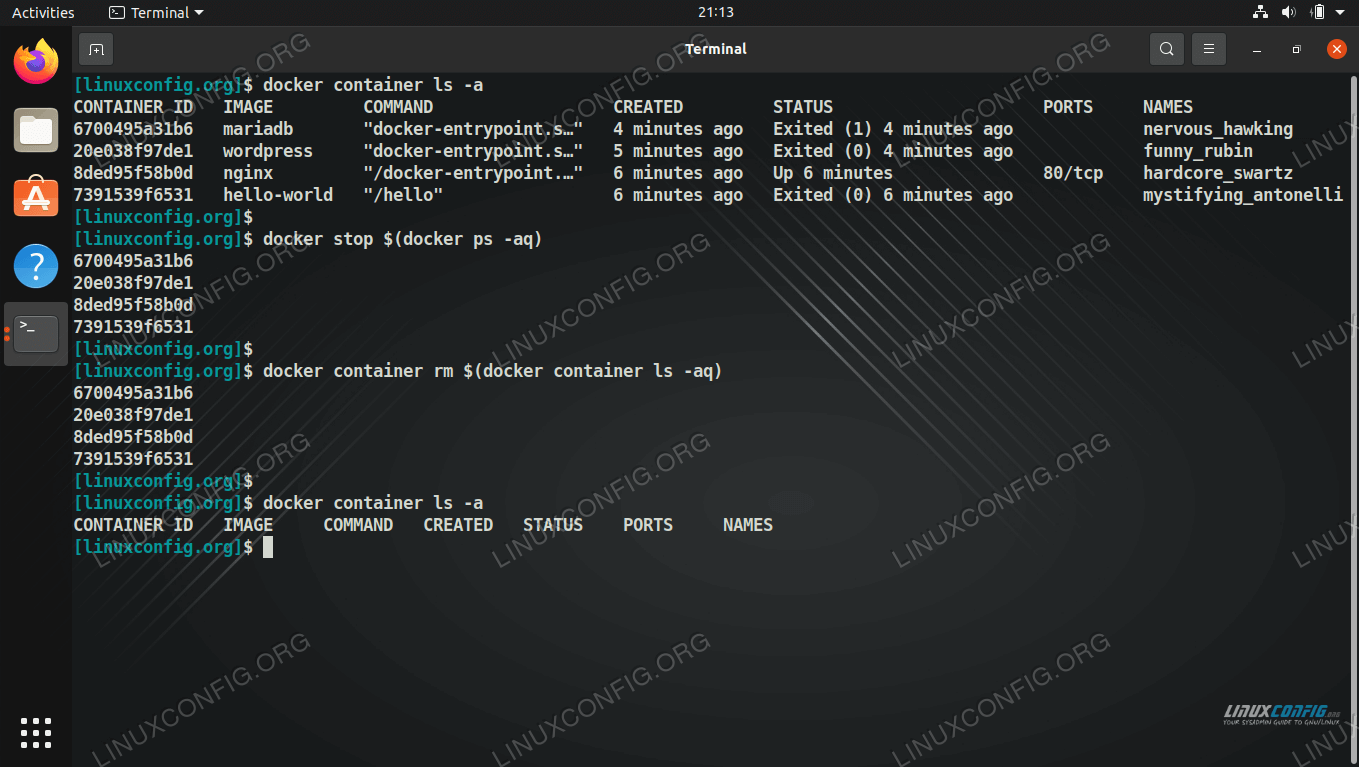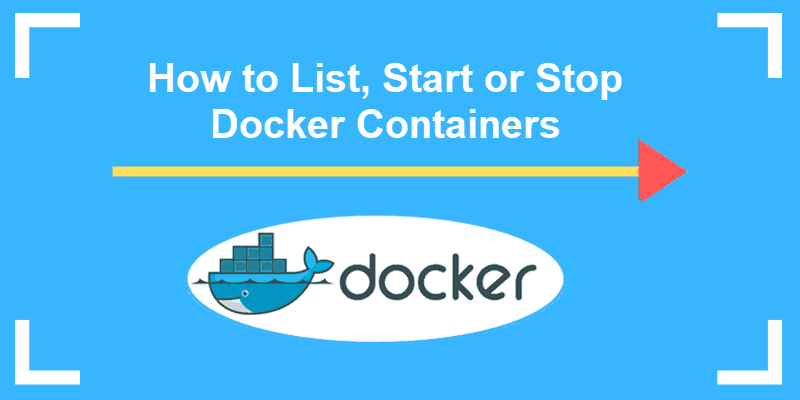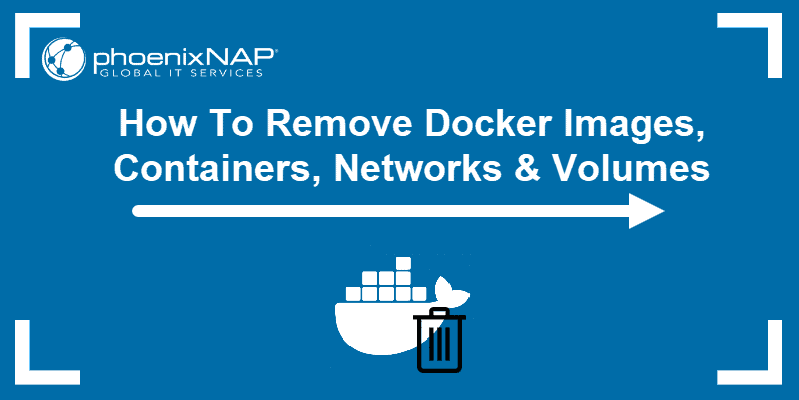Antwort How do I stop all docker containers? Weitere Antworten – How do I stop all docker containers at once
You can stop all Docker containers by using the command docker stop $(docker ps -a -q) . This command effectively halts all running Docker containers. However, it's crucial to understand the implications of this action as it might disrupt ongoing tasks or services.To forcefully stop a Docker container, you can use the docker kill command. The main process inside the container is sent SIGKILL signal (default), or the signal that is specified with the –signal option, which can terminate the process abruptly.The docker system prune command is used to remove unused Docker objects. It can delete the following: All stopped containers. All networks not used by at least one container.
How do I list all stop containers in docker : docker ps -a command to list all containers, including the stopped ones: If you want to see all containers, add a keyword with the 'docker ps' command, i.e., '-a'. This command will show you all containers, whether they are running, restarting, paused, or stopped.
How to see all docker containers
In order to list the Docker containers, we can use the “docker ps” or “docker container ls” command. This command provides a variety of ways to list and filter all containers on a particular Docker engine.
How do I run all docker containers : Step 4: Run your container
- In Docker Desktop, go to the Images tab.
- Next to your image, select Run.
- Expand the Optional settings.
- In Host port, specify 8089 .
- Select Run.
In order to list the Docker containers, we can use the “docker ps” or “docker container ls” command. This command provides a variety of ways to list and filter all containers on a particular Docker engine. Let's start by listing all the running containers.
Procedure to remove data collector Docker container
- Run the following command to remove Docker container: docker stop <Container_ID> docker rm <Container_ID>
- Optional: Run the following command to remove the container forcefully: docker rm -f < Container_ID>
How do I restart all exited docker container
Container Stop/Restart procedure
- To verify if the container has stopped run docker ps -a command. The status of the stopped container would display as Exited . docker ps -a.
- Start a Docker container in a stopped state docker start <container_name/id> Connect:Direct service automatically starts inside the container.
Docker prune command
Docker has a single command that cleans up all dangling resources, such as images, containers, volumes, and networks, not tagged or connected to a container. The Docker prune command automatically removes the resources not associated with a container.In order to list the Docker containers, we can use the “docker ps” or “docker container ls” command. This command provides a variety of ways to list and filter all containers on a particular Docker engine.
To stop one or more running Docker containers, you can use the docker stop command. The syntax is simple: $ docker stop [OPTIONS] CONTAINER [CONTAINER…] You can specify one or more containers to stop.
How to remove all containers and all images in docker : Use the docker container prune command to remove all stopped containers, or refer to the docker system prune command to remove unused containers in addition to other Docker resources, such as (unused) images and networks.
How do I start all containers at once : If you mean to create multiple containers at the same time then you will have to make use of docker-compose. This will startup any stopped containers.
How to delete all docker image
So, to remove multiple images by name, we need to perform:
- list all images by repository and tag, such as postgres:13-beta2-alpine.
- filter the list through a regular expression with the grep command: ^postgres:13-beta.
- feed leftover lines to the docker image rm command.
Remove All the Docker Containers
The command docker ps -qa returns the numeric ids of all the containers present on the machine. All these ids are then passed to the docker rm command, which will iteratively remove the Docker containers. Here, we used the -f flag to avoid the prompt for confirmation.For restarting ALL (stopped and running) containers use docker restart $(docker ps -a -q) as in answer lower.
How do I clear exited containers : Deleting containers on exit
The –rm flag tells Docker to delete it after it stops. Now, a little clarification. By default, the created container stays on the local machine after stopping. And if you don't want to keep the container, then use the –rm flag.








